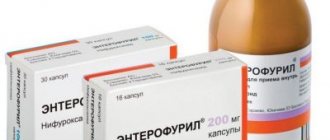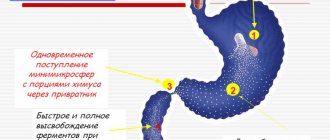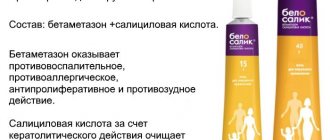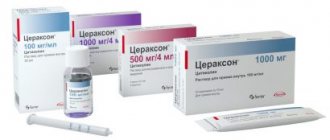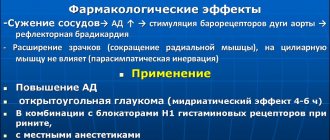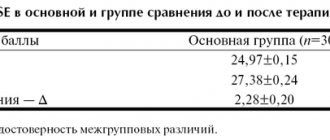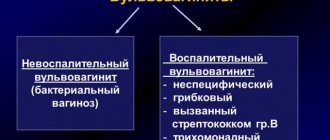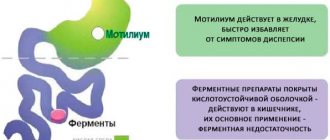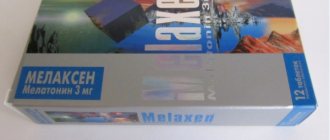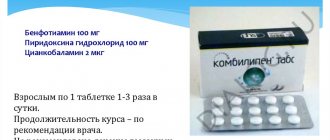Prohibited during pregnancy
Prohibited during breastfeeding
Prohibited for use if you have kidney problems
Akatinol Memantine is a drug that is prescribed for dementia - a decrease in mental abilities, accompanied by impaired memory and concentration. The medicine was developed and produced by a large pharmaceutical company in Germany, so the price is quite high. However, today you can purchase more affordable analogues of Akatinol Memantine, which have an equally high degree of effectiveness.
Packaging of the drug Memantine
This drug is developed on the basis of memantine. Penetrating inside the body, the substance has a fairly wide range of effects:
- normalizes membrane potential;
- stimulates the activity of the glutamatergic system;
- regulates the flow of ions into neurons;
- increases cognitive function of the brain;
- improves the process of transmission of nerve impulses.
Important! Prescribed for maintenance therapy for Alzheimer's disease and vascular/mixed dementia, regardless of severity.
The list of contraindications includes individual intolerance to the components, pregnancy, lactation and kidney dysfunction. The medicine is not used in the field of pediatrics.
With extreme caution, the drug can be prescribed to patients with epilepsy, seizures, heart failure, and myocardial infarction.
Akatinol Memantine is available in the form of tablets for oral administration. The starting dose is 5 mg. Gradually, over four weeks, the amount of the drug (LP) increases to 20 mg.
Pharmacodynamics and pharmacokinetics
The medicine is an NMDA receptor blocker. It inhibits the effects of elevated glutamate levels and thereby prevents neuronal dysfunction. Improves mental activity and normalizes movement disorders.
The maximum content in blood plasma is observed after approximately 3-8 hours. Meals do not affect absorption. The bioavailability of the drug is approximately 100%.
At doses of 10-40 mg, pharmacokinetics are linear. About 45% of the active substance binds to blood plasma proteins. Approximately 80% circulates in its original form.
It is excreted mainly through the kidneys. The half-life is 60-100 hours. The rate of excretion can decrease by 7-9 times in case of alkalinization of urine. This can happen due to drastic changes in diet. For example, if previously it was rich in meat dishes, and then there was a sharp transition to a vegetarian menu. In addition, this effect is possible due to the use of antacid drugs.
Side effects
As a rule, the following undesirable effects that may be associated with the use of the drug are noticeable: confusion, hallucinations , dizziness , feeling of fatigue, headache , anxiety , vomiting, increased libido, increased muscle tone, cystitis . In addition, epileptic seizures . This usually occurs if there was a previous seizure disorder .
Instructions for use of Memantine (Method and dosage)
The instructions for Memantine indicate that it is intended for oral use. It is advisable to start treatment with minimal dosages, which are selected individually. The initial daily dose for adult patients is 5 mg. If necessary, it can be increased by 5 mg every week. The recommended maintenance dosage is 10-20 mg per day. It can be increased to 60 mg. If there are problems with kidney function, the dosage should be reduced.
Instructions for use of Memantine for children recommend giving 0.5 mg per kg of body weight every day. If you have kidney problems, you need to take the drug under monitoring of their functional state.
It is advisable to refrain from driving vehicles, servicing machinery, and other activities that require increased attention while taking the medication.
Substitutes for therapeutic effect
A separate large group of analogues includes drugs that contain other active ingredients. However, they have a similar mechanism of action and can be used to replace Akatinol Memantine.
The most popular substitutes are:
- Cavinton;
- Tanakan;
- Ginkum;
- Ginkgo biloba.
Substitutions can only be made with the permission of the attending physician.
Cavinton
A drug from the pharmacological group of drugs, which improves blood circulation in the brain, was developed on vinpocetine. Cavinton pilyule_nervi-446 is marketed as a concentrate for the preparation of infusions. A cerebrovasodilating drug helps improve cerebral metabolism and rheological properties of blood. It has a stimulating effect on the noradrenergic system.
Doctors prescribe this remedy for:
- Vascular dementia.
- Transient ischemia.
- Vertebo-basilar insufficiency.
- Progressive stroke.
- Atherosclerosis.
- Secondary glaucoma.
- Meniere's disease.
- Cochleovestibular neuritis.
If the patient has a severe arrhythmia or is allergic to the components of the drug, it should be replaced. Contraindications also include childhood, lactation and pregnancy.
To prepare the solution, add 20 mg of the drug to 500 ml of saline solution - this is the daily dose. The dropper speed should not exceed 80 drops/minute. Cavinton is intended for intravenous administration only.
Cavinton differs from the original medicine in its active substance and release form.
Tanakan
Tanakan is part of the medicinal group of angioprotective drugs of plant origin. The main component is ginkgo biloba leaf extract. The main task of the medication is to improve cerebral circulation.
Has a positive effect on blood rheological parameters. Improves vasomotor reactions of blood vessels. Saturates the brain with oxygen and glucose, prevents the formation of blood clots and aggregation of red blood cells.
Prescribed for:
- cognitive disorders;
- vertigo;
- ringing in the ears;
- Raynaud's syndrome/disease;
- intermittent claudication.
Before starting treatment, you should familiarize yourself with the list of contraindications:
- ulcer of the duodenum or stomach;
- decreased blood clotting;
- erosive gastritis;
- lactation;
- pregnancy;
- lactose intolerance;
- lack of lactase.
The medication is intended for internal use three times a day with meals. A single dose is 1 ml or 1 tablet. Tanakan should be washed down with a moderate amount of clean water.
Since the drug is available in the form of a solution, it comes with a special dispensing pipette. With its help, you can quickly measure the required amount of solution (1 ml = 1 dose).
Despite the fact that Tanakan contains raw materials of plant origin, it is an analogue of Akatinol in terms of therapeutic action.
Ginkum
Capsules are developed based on dry extract of ginkgo leaves. LP refers to angioprotectors of plant origin. The raw materials contained in the medication affect the rheology and microcirculation of the blood. Dilates blood vessels, exhibits an anti-edematous effect in brain and peripheral tissues.
Ginkoum is used for cerebrovascular disorders that lead to:
- sleep disturbance;
- slowing down of mental functions;
- dizziness;
- tinnitus;
- feeling of anxiety;
- malaise.
It is prohibited to prescribe the drug for:
- strokes;
- ulcer;
- abnormal blood clotting;
- myocardial infarction;
- erosive gastritis;
- Low blood pressure.
It is also not recommended to use it to treat minor children, expectant and nursing mothers.
The instructions from the manufacturer indicate that you need to take 3 capsules per day. Equal intervals should be observed between doses.
The original product and the substitute are in different groups and contain different components. Unlike Memantine, Ginkoum has a wider spectrum of action.
Ginkgo biloba
A medication from the group of angioprotective drugs based on components of plant origin. Its mechanism of action is determined by the dry extract of ginkgo leaves.
After penetration into the body, the substance prevents the formation of blood clots, improves blood flow, and exhibits vasoactive pharmacotherapeutic and antioxidant effects. The medication is also characterized by minor diuretic, nephroprotective and antidepressant properties.
Ginkgo Biloba is used to eliminate:
- feelings of anxiety and fear;
- dizziness;
- hypochromic anemia;
- atherosclerosis;
- DAT;
- arteriopathy;
- diabetic retinopathy;
- cerebrovascular disorders.
The list of absolute contraindications includes:
- increased sensitivity to plant materials;
- stomach ulcer;
- myocardial infarction;
- impaired cerebral circulation;
- children up to 16 years of age.
Under the supervision of a qualified specialist, patients with erosive gastritis or epilepsy can be treated.
When carrying out symptomatic therapy, 1-2 tablets are prescribed three times a day. To normalize blood circulation in the brain - one or two tablets 3 times a day. Patients with neurosensory disorders and impaired peripheral blood flow take one tablet.
Ginkgo Biloba is a herbal preparation. This is its main difference from Memantine.
See also:
TOP 10 analogues of Pantogam - drug substitutes for therapeutic effect
Interaction
The medicine affects the effect of dopaminergic receptor agonists, antipsychotics, barbiturates, anticholinergics, amantadine , levodopa . In addition, it may alter the effects of Baclofen and Dantrolene . So their dosages may need to be adjusted.
It is not recommended to take simultaneously with phenytoin . And interaction with drugs containing hydrochlorothiazide can lead to a decrease in the content of the latter in the blood plasma.
Combination of the drug with N-methyl-D-aspartate antagonists should be avoided. Otherwise, it may cause side effects.
Buy Akatinol Memantine film-coated tablets 20mg No. 28 in pharmacies
Buy Akatinol Memantine in pharmacies Akatinol Memantine in the medicine directory DOSAGE FORMS film-coated tablets 20 mg
MANUFACTURERS Merz Pharma GmbH and Co. KGaA (Germany)
GROUP Nootropic drugs
COMPOSITION Active substance: memantine hydrochloride.
INTERNATIONAL NON-PROPENTED NAME Memantine
SYNONYMS Memantine Canon, Memantine-TL, Memikar, Memorel, Noodzheron
PHARMACOLOGICAL ACTION Pharmacodynamics. Being a non-competitive antagonist of N-methyl-D-aspartate (NMDA) receptors, it has a modulating effect on the glutamatergic system. Regulates ion transport, blocks calcium channels, normalizes membrane potential, improves the process of nerve impulse transmission. Improves cognitive processes, increases daily activity. Pharmacokinetics. After oral administration, it is quickly and completely absorbed. The maximum concentration in blood plasma is achieved within 2-6 hours. With normal renal function, no accumulation of the drug was observed. Excretion occurs in two phases. The half-life is 4-9 hours in the first phase, 40-65 hours in the second phase. It is excreted in the urine.
INDICATIONS FOR USE Dementia of the Alzheimer's type, vascular dementia, mixed dementia of all degrees of severity.
CONTRAINDICATIONS Individual hypersensitivity to the drug, severe renal dysfunction, pregnancy, breastfeeding, children under 18 years of age (due to insufficient data).
SIDE EFFECTS For the body as a whole - general side effects. Often: headache; rarely: fatigue. Infections. Rarely: fungal infections. Mental disorders. Often: drowsiness; rarely: confusion, hallucinations; frequency not established: psychotic reactions. Disorders of the cardiovascular system. Rarely: hypertension, venous thrombosis/thromboembolism; uncommon: heart failure. Respiratory system disorders. Common: shortness of breath. Gastrointestinal disorders. Common: constipation; rarely: nausea, vomiting; frequency not established: pancreatitis. Disorders of the central and peripheral nervous system. Common: dizziness; rarely: gait disturbance; very rarely: convulsions. Hallucinations have been observed mainly in patients with Alzheimer's disease at the stage of severe dementia.
INTERACTION When used simultaneously with L-dopa drugs, dopamine agonists, and anticholinergics, the effect of the latter may be enhanced. When used simultaneously with barbiturates and neuroleptics, the effect of the latter may decrease. When used together, it may change (increase or decrease) the effect of dantrolene or baclofen, so the doses of the drugs should be selected individually. Concomitant use with amantadine, ketamine and dexamethophan should be avoided. Plasma levels of cimetidine, procainamide, kinidine, kinin and nicotine may increase when taken simultaneously with memantine. A decrease in hydrochlorothiazide levels may occur when taken concomitantly with memantine.
METHOD OF APPLICATION AND DOSAGE Orally, during meals. The dosage regimen is set individually. It is recommended to begin treatment with the administration of minimally effective doses. Adults with dementia are prescribed a dose of 5 mg/day during the 1st week of therapy, and a dose of 10 mg/day during the 2nd week. During the 3rd week - at a dose of 15-20 mg/day. If necessary, it is possible to further increase the dose weekly by 10 mg until a daily dose of 30 mg is reached. The optimal dose is achieved gradually, with the dose increasing every week.
OVERDOSE Symptoms: increased severity of side effects. Treatment: gastric lavage, taking activated carbon, symptomatic therapy.
SPECIAL INSTRUCTIONS Prescribe with caution to patients with thyrotoxicosis, epilepsy, seizures (including a history), myocardial infarction, heart failure. Patients with Alzheimer's disease in the stages of moderate to severe dementia usually have impaired ability to drive vehicles and operate complex machinery. In addition, memantine may cause changes in the reaction rate; therefore, in patients receiving treatment on an outpatient basis, special care should be taken when driving or operating machinery.
STORAGE CONDITIONS Store out of the reach of children at a temperature not exceeding 25 C.
Memantine analogs
Level 4 ATX code matches:
Ginos
Akatinol Memantine
Intellan
Tanakan
Noodzheron
Ginkgo biloba
Bilobil
Memoplant
Ginkum
Vitrum Memory
Namenda
A doctor may prescribe the following analogues of Memantine:
- Maruxa
- Memorel
- Akatinol Memantine
- Alzeim
- Memaneurin
- Memantine hydrochloride
- Memantal
- Memantinol
- Memicar
- Noodzheron
None of them should be taken on your own without consulting a specialist.
Patient reviews on the choice of Akatinol Memantine analogues
To compare the original drug with its substitutes, you can read reviews from specialists or patients. However, their opinions should not play a decisive role. Before taking the medicine, you must undergo examination and consult a doctor:
Vyacheslav, 40 years old: “When my father developed dementia, the psychiatrist prescribed Akatinol Memantine. I took it for about 4 months. We were pleased with the effect. Then we were recommended to switch to Memantal. Since you need to take the medicine for life, the original “hits” the family budget quite well. We thought about it for a long time, but still decided to switch to a substitute. It costs several times less, but the effect is the same. Dad stopped having inexplicable attacks of aggression, and his sleep returned to normal. The progression of dementia has slowed significantly.”
Svetlana, 38 years old: “About five years ago, my grandmother began to show signs of atherosclerosis. On the recommendation of the family doctor, we bought Ginkgo Biloba. This is a herbal remedy. They gave me one tablet three times. At the end of the course we did not get the desired result. We contacted a neurologist. She prescribed Akatinol. Despite the fact that this medicine is quite expensive, the therapeutic effect cannot but rejoice. My grandmother has been taking pills for 3 years now. In addition, you only need to drink them once a day.”
To decide on the choice of medication, you need to consult a specialist. Akatinol and its substitutes have a high degree of effectiveness and safety. Rarely lead to side effects. The final choice depends on the patient’s preferences and the characteristics of his body.
Memantine price, where to buy
The price of Memantine in tablets of 10 mg is approximately 1200 rubles per pack of 90 pcs. The cost of the drug is considered quite high. However, the price of Memantine is lower than the cost of its more common analogues.
- Online pharmacies in RussiaRussia
- Online pharmacies in UkraineUkraine
- Online pharmacies in KazakhstanKazakhstan
LuxPharma* special offer
- Memantine 20 mg 30 pcs
1870 rub. order
ZdravCity
- Memantine-Akrikhin tab. p/o captivity. 10 mg 84 pcs. Polpharma Pharmaceutical plant S.A.
RUB 1,663 order
- Memantine-Akrikhin tab. p/o captivity. 10 mg 28 pcs. Pharmaceutical plant Polpharma JSC
RUR 702 order
- Memantine Canon tablets p.p.o. 10 mg 30 pcs. Canonpharma Production CJSC
RUR 678 order
- Memantine Canon tablets p.p.o. 20 mg 30 pcs. Canonpharma Production CJSC
RUB 1,113 order
- Memantine Welfarm tab. p/o captivity. 0.01g 30pcs Velpharm LLC
RUR 539 order
Pharmacy Dialogue
- Memantine Canon tablets 10 mg No. 30Canonpharma Production
RUB 447 order
- Memantine Canon tablets 20 mg No. 30Canonpharma Production
RUR 1,138 order
- Memantine Canon tablets 10 mg No. 90 Kanonpharma Production
RUB 1,072 order
- Memantine (tab.p.pl/vol. 10mg No. 28)Polfarma
RUR 713 order
- Memantine (tab.p.pl/vol. 10mg No. 84)Polfarma
RUB 1,607 order
show more
Pharmacy24
- Memantine Teva 10 mg N30 tablets TEVA Pharmaceutical Industries Ltd., Israel/AT Pharmaceutical plant TEVA, Ugorshchina
254 UAH.order - Memantine Teva 20 mg N30 tablets TEVA Pharmaceutical Industries Ltd., Israel/AT Pharmaceutical plant TEVA, Ugorshchina
319 UAH. order
PaniPharmacy
- MEMANTINE tablets Memantine-Teva tablets. 20 mg No. 30 Israel, Teva
346 UAH order
- MEMANTINE tablets Memantine-Teva tablets. 10 mg No. 30 Poland, Teva Operations Poland
276 UAH. order
show more
Prices of Akatinol Memantine and its analogues
The cost of a foreign medicine ranges from 1,600 to 8,300 rubles, depending on the dosage of the main component and the number of tablets in one package. This price is not suitable for many patients, especially the elderly. If there is a need to replace a prescribed medication, you can consult a doctor and choose an effective analogue at an affordable price.
Cost of generics Akatinol Memantine in Russian pharmacies:
| Name of medicine | Number of tablets per package, pcs. | Cost in rubles |
| Maruxa, 10 mg | 30 60 | 780 1311 |
| Memicar, 10 mg | 30 | 960 |
| Noodzheron, 10 mg | 30 60 90 | 1119 2523 2954 |
| Memaneurin, 50 ml | 1 | 1587 |
| Memantal, 10 mg | 30 60 90 | 503 858 1247 |
[compare name=`Maruxa|Memantal|Sentetia|Memicar|Noodgeron|Memorel|Memaneurin|Abixa|Noflux|Cortexin|Cavinton|Tanakan|Ginkoum|Ginkgo Biloba`] You should not select drug substitutes on your own, as this may negatively affect the condition of patients and provoke pathological complications.
See also:
TOP 7 analogues of Picamilon - Russian and foreign substitutes for the drug
